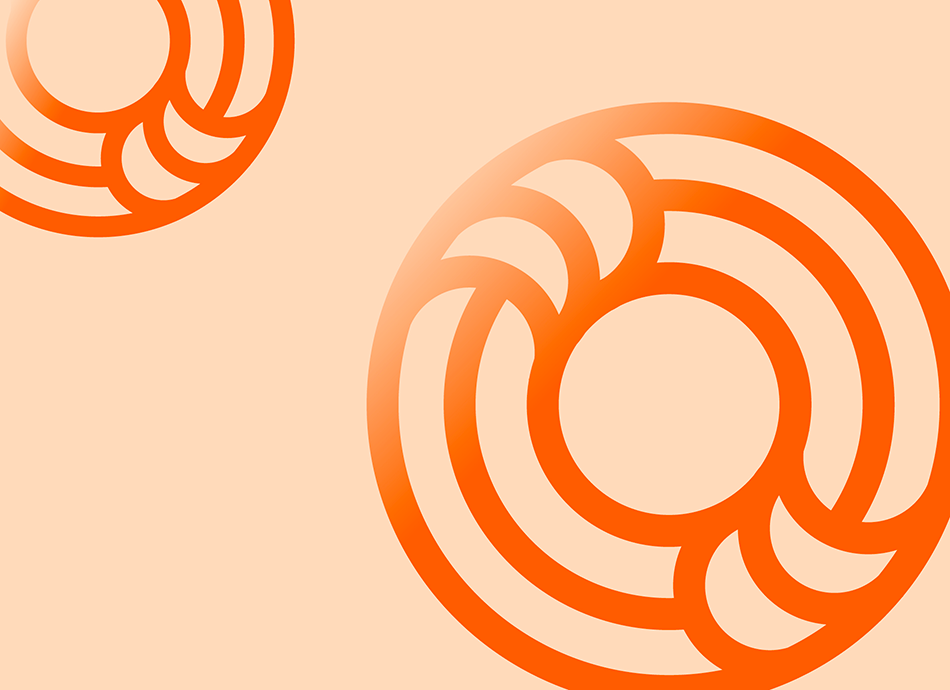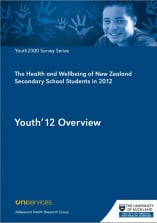Youth health for healthcare providers
Key points about youth health
- This page contains information about youth health for healthcare providers.
- Young people have significant health needs ranging from higher rates of risk taking behaviour, accidents, mental health problems through to alcohol and drug misuse and sexual health issues.
- Find information on the health needs of youth, the mental health youth project and resources for further reading.

Key statistics
- Hazardous drinking rates peak in the 18–24-year age group. One-third of 18–24-year olds (33%) are hazardous drinkers. (1)
- There has been a dramatic increase in the global prevalence of obesity.
- In 2012 New Zealand adults ranked third highest out of 15 OECD countries for measures of obesity and in 2010 New Zealand children (aged 5–17 years) ranked third highest out of 40 countries for overweight (including obesity). (2)
- Adults and children living in the most deprived areas have higher rates of all health risks including smoking, hazardous drinking and obesity. (1)
- Unmet need for primary health care is more common among Māori and Pacific adults and children, and in those living in the most deprived areas (1)
Youth Survey Series
A series of surveys of Year 10 students has been conducted in New Zealand since 2000.(3) Led by the University of Auckland, the Youth2000 survey series(external link) (University of Auckland) ask a large, representative sample of secondary school students from over approximately a third of all high school in New Zealand a wide range of questions that contribute to health and wellbeing of young people in New Zealand.
These include questions about:
- ethnicity & culture,
- physical health,
- food & activities,
- substance use,
- sexual health,
- injuries and violence,
- home and family health,
- school achievement and participation,
- neighbourhood environment,
- spirituality and
- access to healthcare.
This series provides invaluable information about health, wellbeing and trends in this age group. In the latest survey of 2012(external link), the areas of health and wellbeing where students report little or no change include:
- Inconsistent condom and contraception use
- Being bullied
- Being overweight or obese
- Youth not feeling they spend enough time with at least one parent
- Youth experiencing significant depressive symptoms
Areas that have significantly worsened over the last decade as shown by the Youth Survey Series including:
- Parents worrying about having enough money for food
- Access to a family doctor
- Participation in paid part-time employment.
Te Ohonga Ake Reporting Series
The New Zealand Child and Youth Epidemiology Service provide annual reports to participating District Health Boards (DHBs) since 2005 to assist with DHBs' 3-yearly Health Needs Assessments.
Each three year reporting cycle aims to provide a comprehensive overview of child and youth health, using an Indicator Framework(external link) developed specifically for this purpose. Within each cycle, issues are covered in the following order:
- Year 1: The Health Status of Children and Young People
- Year 2: The Determinants of Child and Youth Health
- Year 3: Children and Young People with Chronic Conditions and Disabilities
In 2010, Health New Zealand | Te Whatu Ora commissioned some additional reports to provide an overview of health issues for Māori children and young people.
- The Health Status of Māori Children and Young People in New Zealand(external link) 2012
- The Health of Māori Children and Young People with Chronic Conditions and Disabilities in New Zealand(external link) 2012
- The Determinants of Health for Māori Children and Young People in New Zealand(external link) 2012
These issues are exacerbated by barriers to accessing health services, low income and frequent relocation.
Mental Health Youth Project
The Prime Minister’s Youth Mental Health Project (YMHP) was launched in 2012. This project is an intersectoral initiative that "aims to help prevent the development of mental health issues and improve young people’s access to youth mental health services." It was established in response to a report from the Prime Minister’s Chief Science Advisor, Improving the Transition: Reducing Social and Psychological Morbidity During Adolescence(external link) which raised concerns about significant levels of mental health issues occurring during the transition period from childhood to adulthood including depression and other mental health disorders, harmful use of alcohol, cannabis use and youth suicide.
Some of the initiatives to promote youth mental health include:
- SPARX(external link) – A self-help e-therapy tool in an online game-style format that young people can use in their own space.
- Common Ground(external link) – A place for family, whānau and friends to help our young people enjoy positive mental health and wellbeing.
- Lifehack(external link) – The team runs a social innovation lab and incubator weekends to co-create projects that promote young people’s wellbeing.
- Aunty Dee – A New Zealand based wellbeing tool to help people cope with stressful life experiences through support with problem solving. Although anyone can use the tool, it is aimed at Pacific and Maori young people aged 14-25 years.
Evaluation of the Youth Mental Health Project
In May 2015, Superu released a research review and a formative evaluation of the Youth Mental Health Project. A summative report of all the projects will be completed in 2016.
View the formative evaluation report summary(external link)
View the research review(external link)
Mental health article
Time to focus on youth mental health(external link) He Ako Hiringa, NZ, 2023
For some children with significant ongoing health issues, the transition from Paediatric services and hospital care to adult services is a crucial time to ensure ongoing engagement and motivation in taking care of themselves.
For teens with conditions such as rheumatic heart disease, type 1 diabetes, bronchiectasis, cystic fibrosis, congenital heart disease, visual or hearing disabilities, cerebral palsy, intestinal and motor problems and many more, establishing trusting relationships with new healthcare teams is also critical to encourage optimal management of their condition and the transition to being fully responsible for their ongoing health needs.
A number of speciality services have developed transition programmes to smooth this process. If any of your patients or clients are finding the transition difficult, contact the service involved and check if there is a specialist nurse or other person that can assist.
A tool that may be helpful in assessing this transition has been developed by the University of North Carolina (UNC) and is known as the TR(x)ANSITION Scale,It is designed to measure the health-care transition and self-management skills by youth with chronic health conditions.(4)
Video: The Inbetweeners, it is okay to be in both worlds (Documentary)
(Asian Family Services AFS, NZ, 2022)
Video: Inbetweeners from Asian Family Services
(Asian Family Services AFS, NZ, 2022)
Developing youth-friendly resources
Guidelines have been developed by Youthline in partnership with the Ministry of Social Development to help agencies develop youth-friendly mental health resources.
Go to the Ministry of Youth Development website(external link) to download the guidelines.
HEEADSSS - eLearning module
HEEADSSS is a validated assessment tool that is commonly used to help assess youth wellbeing through a series of questions relating to:
- home,
- education/employment,
- eating,
- activities,
- drugs,
- sexuality,
- suicide and depression, and
- safety (HEEADSSS).
An eLearning module providing an introduction to this tool has been developed by Werry Workforce Whāraurau, in collaboration with other agencies. The module is a 4-6 hours online resource design for professionals working in Primary Care.
Target audiences include school nurses, school counsellors, youth workers, practice nurses, GPs, primary mental health and AoD professionals and social workers. Professionals working in other sectors will also find the course of value.
Access is free and via the Goodfellow Unit(external link)
HEEADSSS in five minutes(external link) Podcast, Goodfellow Unit, NZ
Adolescent consultation and the HEADSSS assessment(external link) Starship, NZ, 2022
The HEADSSS assessment sample questions(external link) Whāraurau, NZ, 2021
Co-Existing Problems (CEP) & Youth
Co-existing problems are an increasing issue for young people and often are not identified. This leads to poor outcomes for the young person which can have long-term impacts for their future and wellbeing. Mental health and addiction issues are significantly high for young people and access rates for treatment is low.
The aim of this CEP e-learning is to upskill health professionals working with young people to feel more confident in identifying and providing treatment for those issues associated with CEP.
Access is free and via the Goodfellow Unit(external link)
Continuing professional development
Webinar: Youth mental health – supporting our young people(external link)
Dr Cathy Stephenson – GP, Senior clinical lecturer University of Otago, Dr Arran Culver – Child and Adolescent Psychiatrist
This presentation includes:
- The prevalence of mental ill health for youth
- The gold standard management for youth depression and anxiety and how to differentiate between mild, moderate and severe presentations
- Barriers to providing the best management
- What we can learn from the He Ako Hiringa EPiC data
- How the prescribing data can influence our practice
- Where practitioners can find more resources and education.
Video: Adolescent HEADDSSS – a cultural perspective on what’s new with GenZ
(Goodfellow Unit Webinar, 2018)
Videos: PHARMAC seminar: Adolescent health for beginners
1. Communication and brain development (39 minutes) - Dr Sue Bagshaw
(PHARMAC, NZ, 2017)
2. Communication and problem solving (31 minutes) - Dr Sue Bagshaw
(PHARMAC, NZ, 2017)
For more videos of the same series, visit PHARMAC Seminars(external link).
Youth mental health – supporting our young people (Dr Cathy Stephenson & Dr Arran Culver)
- Ministry of Health. 2014. Annual Update of Key Results 2013/14: New Zealand Health Survey(external link). Wellington: Ministry of Health.
- Ministry of Health. 2015. Understanding Excess Body Weight: New Zealand Health Survey.(external link) Wellington: Ministry of Health
- Clark, T. C., Fleming, T., Bullen, P., Denny, S., Crengle, S., Dyson, B., Fortune, S., Lucassen, M., Peiris-John, R., Robinson, E., Rossen, F., Sheridan, J., Teevale, T., Utter, J. (2013). Youth’12 Overview: The health and wellbeing of New Zealand secondary school students in 2012(external link). Auckland, New Zealand: The University of Auckland
- Ferris ME, Harward DH, Bickford K et al. A clinical tool to measure the components of health-care transition from pediatric care to adult care: the UNC TR(x)ANSITION scale.(external link) Ren Fail. 2012;34(6):744-53. doi: 10.3109/0886022X.2012.678171. Epub 2012 May 14.
Credits: Healthify editorial team. Healthify is brought to you by Health Navigator Charitable Trust.
Page last updated:



